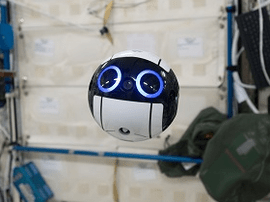A meteor has crashed to the International Space Station (ISS) and the air is leaking out somewhere.
As a team, students must create their own program to operate the real robots Astrobee and Int-ball and stop the air leakage on the actual International Space Station (ISS). That’s right! The real International Space Station!
Launched in Australia by the One Giant Leap Australia Foundation, the Kibo Robot Programming Challenge is an educational competition designed to encourage students solve various given problems by using real robots inside the International Space Station (ISS). This program is hosted by Japan Aerospace Exploration Agency (JAXA) in cooperation of National Aeronautics and Space Administration (NASA).
The purpose of Kibo-RPC is to foster next generations of scientists by making younger generations, mainly school students, more accessible to the space. Also, by creating programs to control the space robots, we will improve science, technology, engineering and math knowledge, and nurture world-leading engineers. In Kibo-RPC, expansion of international exchange will be accomplished through intercourses of participants with other countries.
How to enter the Kibo-RPC
1. Please read the Kibo-RPC Guidebook carefully.
2. Download and fill in the Application Form and send it to: kibo@onegiantleapaustralia.com.
Entry Qualification
1. Australian high school students from 15 years old up to graduate school can apply for the competition. They must be enrolled in an Australian school or an Australian KIBO-RPC partner university or be part of a partner university outreach program.
2. A team is comprised of 3 or more members.
For more information about Kibo-RPC: http://iss.jaxa.jp/en/kuoa/krpc/
High-level Schedule
Call for participation Deadline: 19 April 2020
Self-learning and program development:
Participants will access to the Github repository provided by NASA to learn about the programming of the space robot (Astrobee)
https://github.com/nasa/astrobee
Participants will create programs using JAXA’s simulation environment.
Preliminary Round: Between April and June 2020
Hosted at various Australian Universities.
Winning team(s) will go to the final round.
ISS Final Round: Around September 2020
It will be hosted by JAXA (Japan Aerospace Exploration Agency) at Tsukuba Space Center with a real-time connections with ISS and will be also broadcasted globally.
For more information visit https://kibo.onegiantleapaustralia.com/


Latest posts by Education Technology Solutions (see all)
- Network Technologies Driving Sustainability for Education and Hospitality in 2025 - May 6, 2025
- Keypath Education Launches AI-enabled Short Course Platform to Drive Career Progression for busy Professionals - February 19, 2025
- Lumify Work Partners with AI CERTs™ to Bring Cutting-Edge AI Certifications to ANZ & PH - February 5, 2025
There is 1 comment
Add yoursPost a new comment
You must be logged in to post a comment.


[…] Author: Education Technology Solutions Go to Source […]